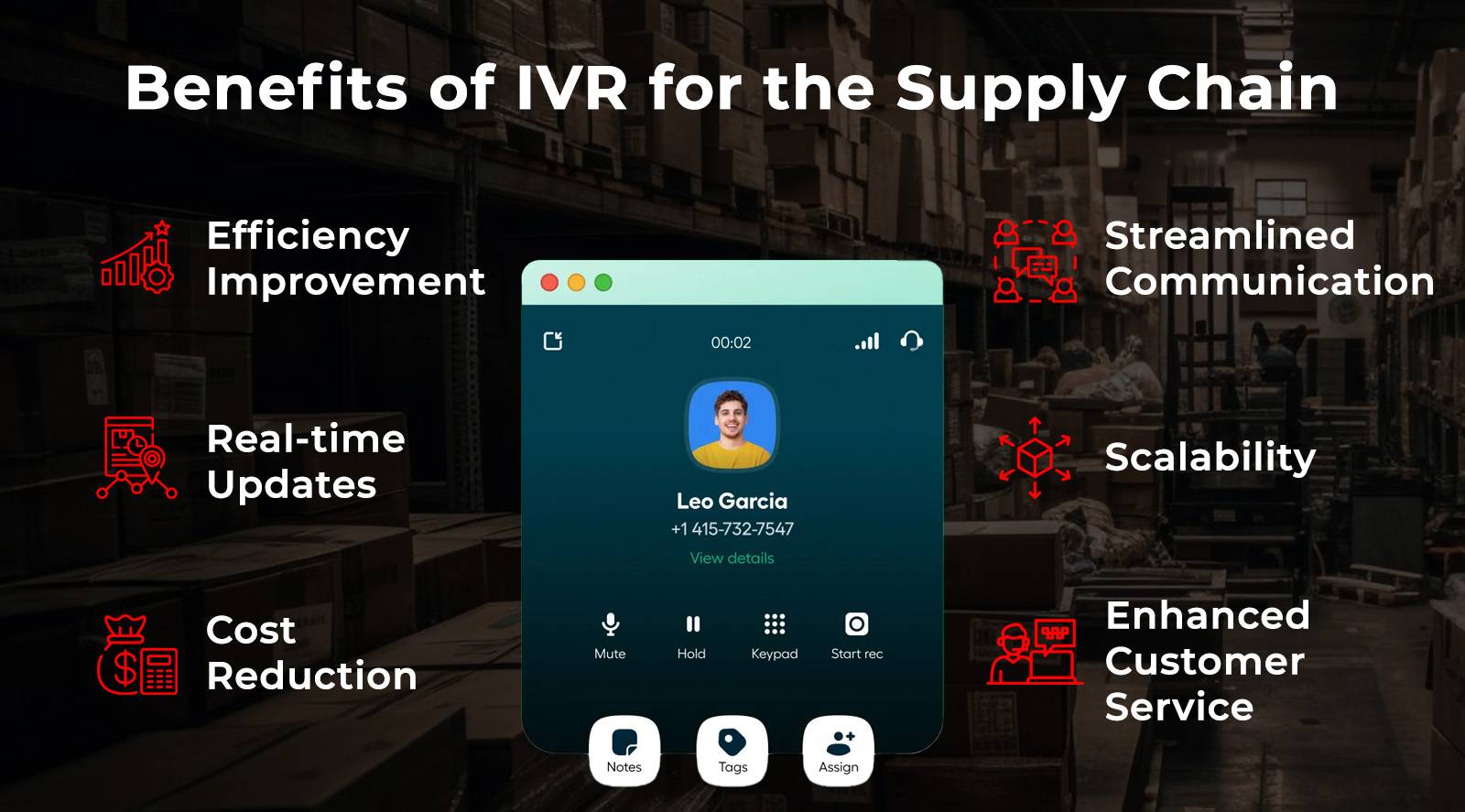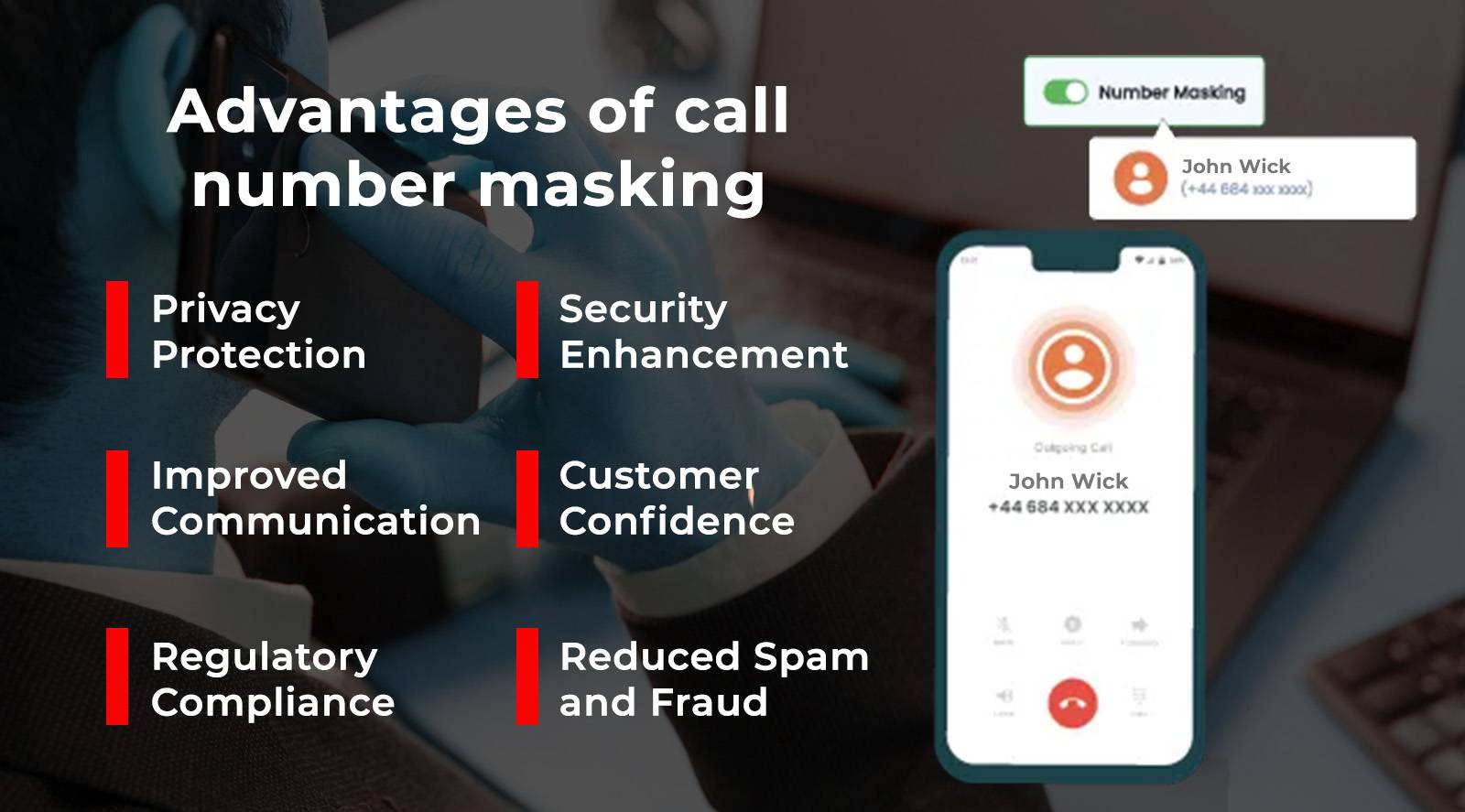In the ever-evolving landscape of supply chain management, staying ahead means embracing innovative solutions. This ensures not only to streamline operations but also to prioritize security and privacy. As businesses navigate the complexities of logistics and customer service, the integration of IVR (Interactive Voice Response) and call number masking emerges as a critical consideration.
But does your supply chain truly need these technologies? Join us as we delve into the pivotal role of IVR and call number masking. This helps optimize efficiency, enhance communication, and safeguard sensitive information within your supply chain ecosystem. Take the first step towards a more secure and efficient operation today with LogiNext!
What is IVR?
Interactive Voice Response (IVR) technology allows automated interactions with callers through voice and keypad inputs. Think of it as a virtual assistant handling customer queries or providing information without human intervention.
How can you use Interactive Voice Response?
Businesses use IVRs to streamline communication, automate routine tasks, and enhance customer service. IVRs can assist with order tracking, product information, and more, making the supply chain process more efficient.
Example: Imagine you’ve ordered a product online and want to inquire about the status of your delivery. Instead of waiting on hold to speak with a customer service representative. You receive a call from the delivery company’s IVR system. The IVR prompts you to input your order number using the keypad or speak it aloud. After confirming your order details, the IVR provides you with real-time updates on the status of your delivery, including the estimated time of arrival and any relevant tracking information. With IVR, you can conveniently access the information you need without the hassle of waiting in queues, enhancing your overall customer experience.
Why is Interactive Voice Response important?
Businesses with IVR systems experience a 20% reduction in customer service costs.
IVR is crucial for optimizing workflows, reducing response times, and ensuring a seamless customer experience. With IVR, businesses can handle a large volume of calls efficiently, improving overall operational efficiency.
Top IVR providers in the global market

Businesses adopting IVR call masking witness a 30% reduction in security-related incidents.
Benefits of IVR for the modern supply chain

Enhanced Customer Service: IVR systems provide 24/7 availability, allowing customers to access information and support at any time, improving overall customer satisfaction.
Streamlined Communication: IVR automates routine inquiries such as order status or delivery updates, reducing the need for manual intervention and streamlining communication between customers and supply chain personnel.
Efficiency Improvement: By automating repetitive tasks, IVR frees up human resources to focus on more complex issues, leading to increased efficiency within the supply chain management process.
Cost Reduction: IVR systems help reduce operational costs by minimizing the need for additional customer support staff and optimizing resource allocation.
Real-time Updates: IVR systems can provide real-time updates on inventory levels, shipment statuses, and other crucial information, enabling proactive decision-making and reducing delays in the supply chain.Scalability: IVR solutions are scalable and can accommodate the growing needs of businesses, making them suitable for companies of all sizes operating within the supply chain industry.
How to integrate IVR into LogiNext’s supply chain management system?
To send Interactive Voice Responses, the platform offers a default IVR gateway. Alternatively, through the Integration Marketplace module, you can integrate your Twilio account with the platform. If you prefer a different IVR gateway partner not listed in the Integration Marketplace, contact your Account Manager to request its addition.
To integrate Twilio, Navigate to Settings > Integration Marketplace > IVR Integration, then click on the Twilio Integrate Button.
Companies integrating IVR witness a 25% improvement in supply chain communication efficiency
Also Read: Best practices for integration with supply chain visibility software
What is call number masking?
– Call number masking ensures privacy by allowing customers and delivery associates to interact without sharing their phone numbers.
– Instead of connecting directly using personal phone numbers, a masked or temporary phone number serves as an intermediary.
– When a customer makes a call, it’s routed through this masked number, safeguarding their real contact information.
For example: Sarah orders groceries for delivery and needs to communicate with the delivery driver. Instead of sharing her phone number, the delivery service uses call number masking. Sarah’s call is routed through a masked number, ensuring her privacy while allowing seamless communication with the driver.
What are the advantages of call number masking?

Privacy Protection: Call number masking safeguards personal phone numbers, ensuring privacy for both customers and service providers during interactions.
Security Enhancement: By using masked or temporary phone numbers, call number masking reduces the risk of exposing sensitive information to unauthorized parties, thus enhancing security.
Improved Communication: It facilitates seamless communication between customers and service providers without compromising privacy, allowing for efficient coordination and problem resolution.
Customer Confidence: Call number masking instills confidence in customers as they can interact with businesses without concerns about their personal information being misused or exposed.
Regulatory Compliance: It helps businesses comply with privacy regulations such as GDPR (General Data Protection Regulation) and PCI DSS (Payment Card Industry Data Security Standard) by minimizing the transmission of sensitive data.
Reduced Spam and Fraud: Masked phone numbers deter spam calls and fraudulent activities since the actual contact information is not readily accessible to potential perpetrators.
Elevate your supply chain with IVR and call number masking
Integrating Interactive Voice Response and call number masking with LogiNext can significantly improve your supply chain customer experience. It also enhances communication efficiency, bolsters security measures, and elevates overall customer satisfaction. These technologies offer businesses the opportunity to streamline operations, protect sensitive information, and adapt to the dynamic demands of modern logistics. By embracing IVR and call number masking, companies can strengthen their supply chain management practices. It also helps position themselves for success in an increasingly competitive landscape.
Like





















